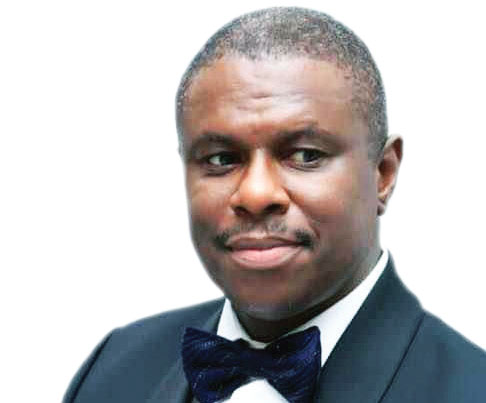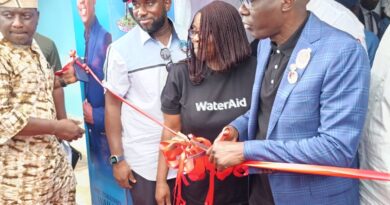Beneath The Surface By Dakuku Peterside
Beneath the surface lies the true story. What we notice—headlines, viral videos, social media mentions, and quarterly results—represents only a small part of the visible landscape. Below the surface are deeper forces: motivations, systems, identities, and daily habits that shape our public life. Going deeper is not about mystery; it’s a clear approach that helps us connect facts to understanding—and understanding to action.
Consider two examples that are often oversimplified. Colonial history is more than a mere timeline; it encompasses how inherited borders, extractive administrative logics, and “customary” categories became entrenched in modern bureaucracies. Cultural identity is not a static label; it is a living negotiation of dignity and belonging within families, schools, and communities. The responsible stance is one of empathy combined with discipline: embracing complexity without surrendering to confusion.
“Beneath the surface” means looking deeper than what first meets the eye. It involves asking four key questions: Why? How? What if? And, importantly, what am I missing? These questions help us discern true causes and effects, rather than just appearances, and remind us to remain humble because our knowledge may be limited. This is particularly important for leaders, but it also applies to all citizens.
The concept of the “Iceberg of Ignorance” warns that numerous small issues or signals often fail to reach the attention of leaders. This is not to blame them, but to highlight the necessity for better ways to grasp the entire situation. Most leaders make decisions based on partial information.
To enhance the quality of decisions and choices, begin with yourself: actively seek honest feedback, especially from those affected by your decisions, and ask yourself, “What am I missing?” Pay attention to behaviours and habits that reveal what really matters.
Be ready to confront uncomfortable truths, as hidden problems are often difficult to accept. Continuously question your assumptions by asking why, how, and what if after making significant decisions. Simple practices such as reviewing actions afterwards and challenging ideas with a team can help transform these lessons into ongoing improvement.
Applying this perspective to Nigeria’s political economy reveals a surface-level optimism for 2025 that masks a more complicated reality. The World Bank reports a growth rate of 3.9% in the first half of the year, coupled with healthy external reserves exceeding $42 billion and a current-account surplus of 6.1% of GDP. Growth is projected to reach 4.2% in 2025 and 4.4% by 2027.
However, everyday life tells a different story. Food prices have skyrocketed, rendering basic necessities about five times more expensive than they were in 2019. This spike has compelled many families to alter their diets and struggle to make ends meet.
Despite overall inflation easing to 20.12% in August 2025, according to NBS data, and interest rates beginning to decline, the lasting impact of the steep price increases in 2023 and 2024 continues to burden poor households, whose expenditures on food consume a significant portion of their income.
Corruption in Nigeria is not merely a result of a few rogue individuals; it is a deep-seated system, and conditions show little sign of change. In 2024, Nigeria scored only 26 out of 100 on the Corruption Perceptions Index, ranking 140th out of 180 countries. This low score reflects a pattern in which government contracts are manipulated, regulatory bodies are influenced, and political funding is closely tied to state resources. Without reforming the foundational rules regarding who is chosen for positions, how money is distributed, and how laws are enforced, this cycle of corruption will persist.
The middle class of skilled professionals with experience is shrinking in politics because it has become costly, risky, and difficult to enter. For instance, in 2022, a major political party charged ₦100 million to run for president, a sum most honest professionals and community leaders cannot afford.
This exorbitant cost disproportionately favours groups—mobilizers, touts, street enforcers, “yahoo boys,” and white-collar criminals—who possess money and influence, expecting returns on their investments. This system discourages talented individuals from entering politics early.
When politics is expensive and powerful, it attracts people who resort to violence and control instead of fostering good ideas. This occurs due to money-driven party regulations and a lack of transparency. Consequently, professionals shy away from political engagement, voter interest wanes, turnout decreases, and political focus shifts to short-term gains.
To address these issues, we should first lower the barriers to entry for running for office by implementing clear spending limits, requiring public financial disclosures, and outlawing hidden payments related to delegate choices for party primaries. Such reforms would invite more qualified candidates into politics. Second, we must enhance government decision-making by mandating detailed planning before large projects, conducting public reviews of results after completion, promoting officials based on demonstrated success, and employing independent panels to scrutinise government work early on. Accountability is crucial.
Third, we should tackle economic issues that contribute to voter disengagement by resolving food supply challenges, such as border delays and storage and transportation inefficiencies, in order to reduce food prices. Additionally, we should provide reliable social support to help individuals feel the benefits of economic stability. Finally, we must encourage citizen participation by disseminating straightforward reports on local and state government performance, making voting processes easier and more trustworthy, and utilising electoral reports to quickly rectify operational problems.
Mbah, Diri, Kefas, And APC Evangelism
What truly motivates these defections? It is overly simplistic to attribute this phenomenon solely to the pursuit of a one-party state, APC’s alleged rigging machinery, economic incentives, political strategies, power dynamics, electoral calculations, or internal party disagreements and dissatisfaction with former political affiliations. We must delve deeper to uncover the true forces driving this trend—what lies beneath the surface.
Nigeria’s hyper-presidential architecture subtly rewards vertical alignment. Governors recognise that federal patronage, security coordination, and funding for large infrastructure projects tend to flow more smoothly when both the centre and the states are in alignment. “APC evangelism” operates not only through incentives but also through the promise of predictability—fewer veto points, quicker approvals, and a more straightforward path to federal partnerships concerning roads, power, security, and cash-transfer pipelines. In a context where citizens demand swift outcomes, alignment becomes a survival strategy.
Secondly, managing political risk is crucial. Defection serves as a form of insurance against hostile oversight, weaponised investigations, or legislative gridlock. Governors who face litigious opponents, unstable coalitions, or fractured state assemblies calculate that switching allegiance reduces exposure and offers elite protection.
The courts, anti-corruption bodies, and revenue agencies form part of a broader risk landscape; changing parties can radically rebalance that landscape in one decisive move.
Thirdly, the ideological distinctions are frail, while deal-making is robust. As programmatic differences become blurred, governors optimise for coalition durability—gaining access to donors, national campaign machinery, and influential gatekeepers, including religious, traditional, business, and media elites. The APC’s national reach provides a ready-made coalition platform and narrative scale that regional or fragmented parties struggle to replicate.
Finally, there exists a reputational and electoral feedback loop. Once a few high-profile defections take place, local power brokers, contractors, and civil service personnel pivot accordingly, generating a bandwagon effect that makes remaining loyal to former parties increasingly costly. Defection signals competence to “bring development,” rather than genuine conviction. In this respect, the calculations of Mbah, Diri, and Kefas prioritise governing leverage amid scarcity—securing federal alignment, de-risking politics, and narrowing the gap between promises made and promises kept.
Failure to Ask and Answer Hard Questions
Amid all this, personal discipline remains vital. Leaders set the tone. If individuals at the top do not welcome dissent, systems will filter out the truth. If meetings reward certainty, evidence will be manipulated to align with preconceived notions. If mistakes are punished rather than analysed, the same errors will recur. Beneath the surface of corruption lies a failure to ask and answer challenging questions; beneath inefficiency, a reluctance to confront trade-offs; and beneath ineptitude, a talent system that equates loyalty with competence.
The deeper paradox is that our crises also serve as our instructors. In a complex environment, comfort is a poor teacher. Discomfort, when interrogated thoughtfully, can be transformed into a strategic advantage. The iceberg metaphor is not intended to intimidate; it serves as a map. Above the waterline reside headlines, talking points, and temporary relief. Below it lie structures—rules, roles, routines, and resources—that determine whether today’s gains evolve into tomorrow’s disappointments or a firm foundation.
Choose depth over spectacle. Ask why and how before focusing on who and when. Seek feedback, even if it feels daunting. Share the data you might be inclined to withhold. Adjust the costs of politics to facilitate the entry of capable individuals. Create an environment where weak signals can surface early without fear. Implement these practices, and the view from above the waterline will begin to make sense, as the underlying shape will finally start to change.
Finally, based on the principle of looking beneath the surface, I will be presenting my collection of essays—written over the past four years and bearing the same title as this essay—on Tuesday, October 14th, in Abuja and Thursday, October 16th, in Lagos, respectively.




